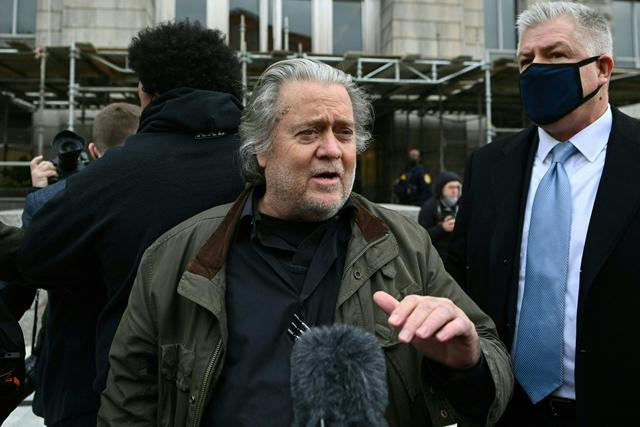You are here
Lawyer denies charges in Trump ‘fake electors’ case in Arizona
By AFP - May 18,2024 - Last updated at May 18,2024

Guests recite the Pledge of Allegiance at the annual Lincoln Reagan Dinner hosted by the Minnesota Republican Party where Republican presidential candidate former president Donald Trump is scheduled to be the keynote speaker on Friday in St Paul, Minnesota (AFP photo)
LOS ANGELES — A lawyer who was the architect of a plan to subvert the 2020 election and return Donald Trump to the White House denied all charges against him when he appeared in an Arizona court on Friday.
John Eastman is the first of 18 people charged in the battleground state to appear in court over the scheme to empanel fake electors to support their favoured candidate.
Others include Trump’s former personal lawyer Rudy Giuliani, one-time Trump White House chief of staff Mark Meadows, attorney Jenna Ellis and campaign adviser Boris Epshteyn.
Eastman on Friday entered not guilty pleas to nine counts including conspiracy, forgery and fraud.
If he is convicted at a trial currently set for October, the crimes could entail prison time.
Eastman told reporters outside court that the charges should never have been brought.
“I had zero communications with any of the electors in Arizona,” he said. “Zero involvement with any of the litigation or the legislative hearings in Arizona. We will proceed to trial and I’m confident, if the law is faithfully applied, I will be fully exonerated.”
A US Congressional committee examining the events leading up to the January 6, 2021 attack on the Capitol recorded that Eastman was the author of memos claiming that then-vice president Mike Pence could refuse to count electoral votes from certain states, thereby preventing Congress from certifying the results.
Democrat Joe Biden won Arizona, a critical election battleground, by just over 10,000 votes, but many Republican Party officials insisted — without evidence — that there had been fraud and that Trump had been the real winner.
Under the US electoral college system, each state appoints electors to represent the candidate who won the most votes in the presidential poll.
Those electors sign official documents that are sent to Congress; these documents are tallied, and the winner is the person with the most electoral college votes.
Despite Trump’s loss in Arizona, his representatives nonetheless signed documents saying he had won.
When Congress reconvened after the violent attacks on January 6, it ultimately ignored Arizona’s fake electors and certified the genuine results, officially sending Biden to the White House.
Arizona is the fourth state to seek charges against people who tried to form an alternative slate of electors, after Michigan, Georgia and Nevada.
Meadows, Giuliani, Ellis and Eastman have all been charged in Georgia, alongside Trump in what is probably the most explosive of the four criminal trials he faces.
As a swing state and something of a ground zero for election conspiracy theories peddled by rightwing Republicans, Arizona is once again expected to be closely contested this November when Americans head to the polls.
Related Articles
WASHINGTON — A defiant Steve Bannon, former president Donald Trump’s long-time adviser, turned himself into the FBI on Monday to face charge
WASHINGTON — US President-elect Joe Biden will name his first cabinet picks on Tuesday, his chief of staff said, even as Donald Trump clung
WASHINGTON — A US envoy said Wednesday that Secretary of State Mike Pompeo directed him to coordinate Ukraine policy with President Donald T


















